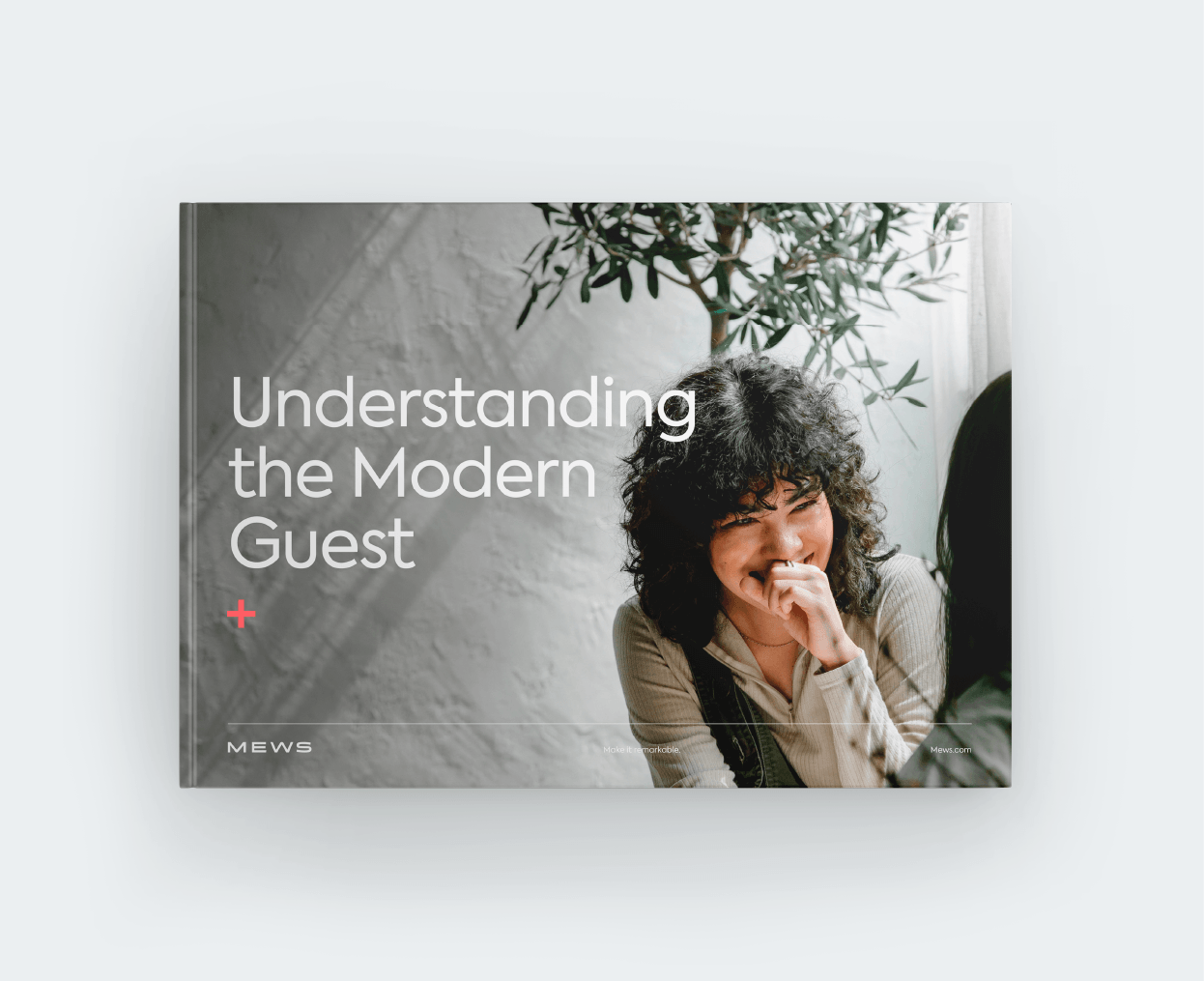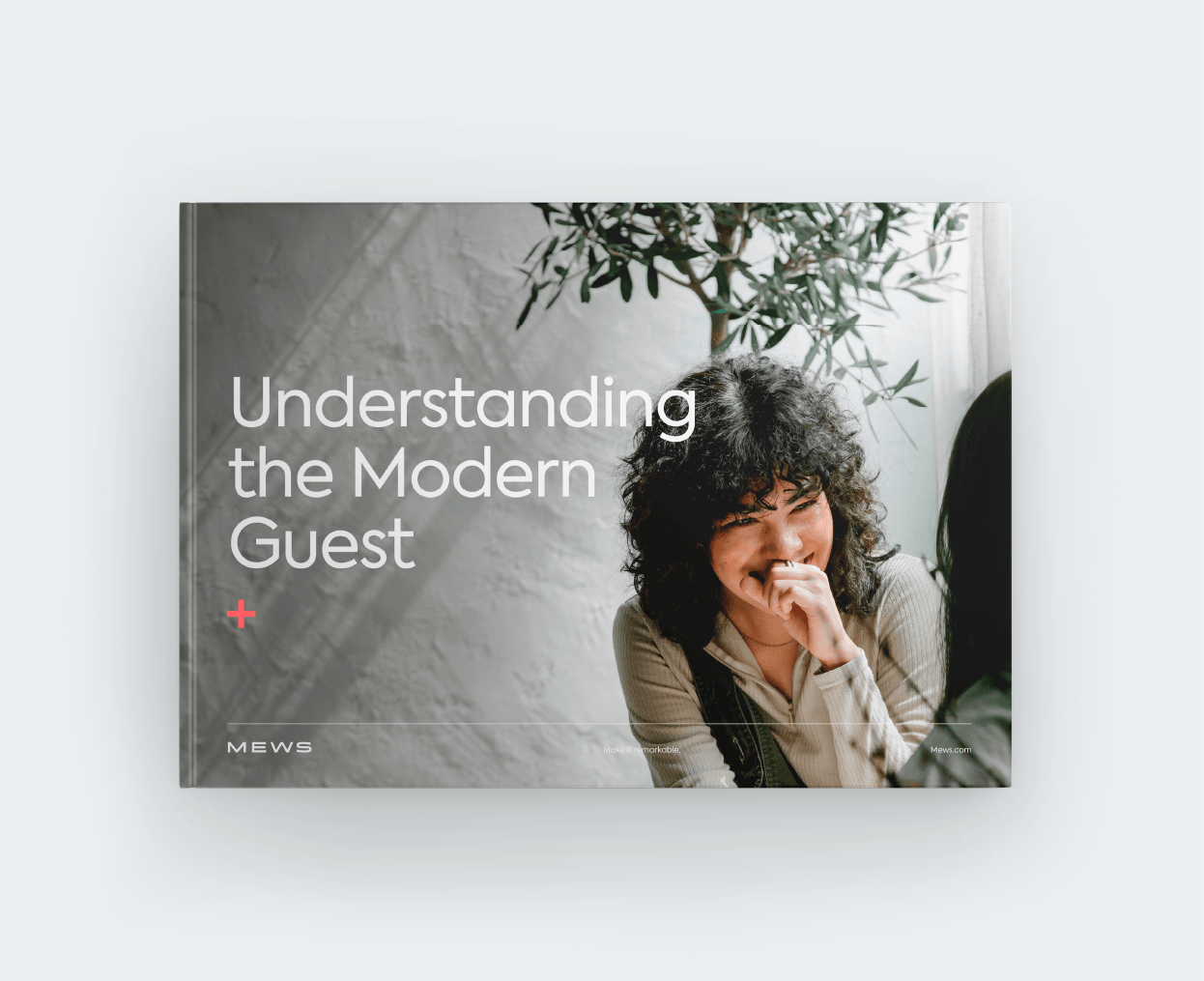There are many types of travelers that could cross the threshold of your hotel lobby, each with their own unique needs, preferences, and challenges. Understanding these differences is key to delivering a truly personalized experience. This insight will help you not only fine-tune your marketing strategies, but also help you implement improvements and provide the essentials that these travelers are looking for.
The more you can adapt to the different audiences you serve, the better your offer will be, and the more satisfied your guests will be. The benefits are numerous for your hotel, its reputation, and guest satisfaction. Keep reading to learn more.
Table of contents
What are the types of travelers and how do you get your hotel ready for them?
When it comes to hotels, there are universal elements that every guest seeks: a clean environment, friendly and attentive staff, inviting common areas, and convenient access to food and drinks. Guests also appreciate knowing there’s someone available to address their questions and concerns. And of course, nothing beats a comfortable bed, soft pillows, and the ability to create a dark, restful space for a good night’s sleep.
With the basics covered, adding personalized touches and tailored features can make all the difference in setting your hotel apart. By anticipating what each type of traveler might need—whether it’s specific amenities or unique experiences—you can create a stay that feels truly special. Meeting guests’ needs before they even ask transforms a standard visit into a remarkable experience they won’t forget.

1. Business travelers
A business traveler is someone who is visiting for the likes of meetings, conferences, or client visits. They often spend little time in their room and are simply looking for somewhere quiet and comfortable that provides them with a good night’s sleep when they retire for the night. Stays can range from a quick overnight stay to extended stopovers for long-term projects or planning.
For these guests, a fast and reliable Wi-Fi connection is a must, allowing them to keep up with emails and tasks on their devices. A desk and chair in the room offer a convenient workspace for when they need to catch up on work. An iron is also essential—no one wants to show up to a meeting with wrinkled clothes—or, at the very least, provide laundry services.
If individual rooms don’t have desks, consider offering a co-working area where they can plug in and work between meetings or at the end of the day. Stock essentials like razors, shaving cream, and sewing kits to cover any last-minute needs, helping them feel prepared and polished.
2. Families
Families make for an exciting and diverse guest group, from multigenerational gatherings to family reunions with grandparents, parents and children in tow. To attract families, it’s helpful to offer entertainment options, such as a poolside movie night, a play area for kids to run around or board games available to borrow.
Consider adding a daycare or babysitting service so adults can enjoy some kid-free time. Within rooms, ensure there’s enough space to set up a crib or cot and accommodate families of different sizes. Suites or small apartments with kitchenettes for warming baby food or preparing quick meals are a huge plus. And in the restaurant, having highchairs and booster seats on hand makes dining easier for families with young children.
3. Digital nomads
Digital nomads and remote workers are transforming the hospitality industry. These location-independent travelers work as they explore, so they’re on the lookout for a comfortable hotel they can make their temporary home. A dedicated co-working space or tables with plug-in options are key amenities they value for productivity.
Fast, stable Wi-Fi and plenty of outlets for devices are essential, as well as easily accessible coffee, tea, and water. Offering convenient lunch options can also be a big plus, saving them from having to go out for meals in the middle of the workday.
Additional services—such as bike or scooter rentals and weekend tours—are appealing because they make staying in-house more convenient. Given their tendency to book longer stays, these amenities can encourage them to extend their stay and engage more with what your hotel offers, boosting ancillary revenue.

4. Couples
Couples make up a straightforward yet rewarding guest group. Typically, they’re traveling together for a getaway, a visit with family or friends, or a sightseeing vacation. These guests seek a quiet, comfortable room where they can unwind after a full day out, and they often enjoy a drink at the bar or breakfast on-site.
Most couples venture out in the morning and return in the evening, so convenience is key. Make it easy for them to book services, and have staff on hand to assist with tour reservations, taxis, or recommendations. With helpful touches and an inviting atmosphere, your hotel can provide the seamless, enjoyable experience couples appreciate.
5. Explorers
Explorers come in all types - young backpackers with just the essentials, trekking tour members with their group, or couples looking to discover the city or nearby attractions. What they all value is convenience: a spot where they can enjoy breakfast, refill their water bottles, and easily arrange taxis or other services.
After a day spent hiking, exploring, or sightseeing, they appreciate a quiet, comfortable room to recharge. Highlight your hotel’s prime location near popular sights and emphasize that you offer a full range of amenities, food options, and helpful tourist information, making their stay as seamless and enjoyable as possible.
6. Seniors
Senior travelers, often retired and over 65, can have varying budgets and preferences. Some are ready to splurge, while others are more budget-conscious. They tend to prefer full-service hotels with options like a complete breakfast, a bar, concierge services, and accessible amenities. Regular check-ins from staff ensure they have everything they need for a smooth stay. Accessible rooms, elevators, and baggage assistance are essential, particularly for seniors with mobility concerns, to make their experience comfortable and hassle-free.
Conclusion
Understanding the needs of different traveler types can help you tailor your hotel’s offerings and messaging to attract each group. When you’re prepared to meet their unique expectations, you’re setting the stage for satisfied guests who are likely to return. Keeping all possible audiences in mind ensures a welcoming, personalized experience that builds loyalty and encourages repeat visits.
You can also elevate personalization and increase satisfaction with the best guest experience software for hotels.
Download our guide "Understanding the Modern Guest"


Understanding the Modern Guest
Download now
Table of contents
Hospitality hot takes straight to your inbox



.webp)
